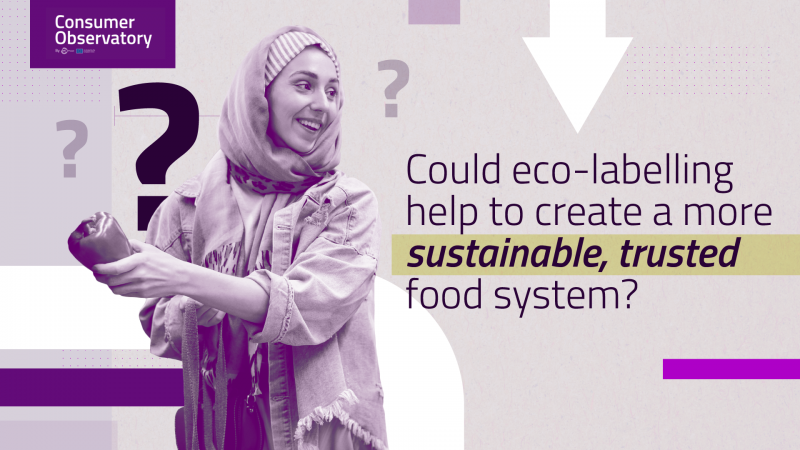Majority of Europeans support international eco-labelling system
Our most recent study for the Consumer Observatory, just under 10,000 consumers across 18 European countries, shows that more than two-thirds would welcome a universal label signalling the environment impact of food products.

Client:
The research has been released to mark the launch of the new Consumer Observatory, a project powered by EIT Food.
Brief:
There are currently no internationally agreed-upon standards for environmental sustainability labelling and no agreement on what sustainable production should measure. Authorities are discussing the development of a common eco-label that would inform consumers about the impact that food products have on the climate and society. But are Europeans interested in such a label? And would they use it?
Our approach:
In total, 9,787 European consumers took part in the survey between. Participants were over 18 years old and weighted to be evenly split across the 18 countries to be nationally representative in terms of age and gender. The 18 countries were: Belgium, the Czech Republic, Denmark, Finland, France, Germany, Greece, Ireland, Israel, Italy, the Netherlands, Poland, Portugal, Romania, Spain, Switzerland, Turkey, and the UK.
Findings in a nutshell:
We found that consumers want to be more informed about the sustainability of food products, with two thirds of Europeans saying they would like to understand better how sustainable food products are.
Particularly older consumers (65+) say they struggle to assess how sustainable a food product is, while under 35’s are more confident.
Two thirds of Europeans (67%) say they would welcome a universal eco-label to help them make more sustainable choices, while just 13% felt they would be unlikely to do so.
The information that is currently available on food packaging is not widely trusted, with under half (40%) of participant trusting existing sustainability labels. Vegans were particularly mistrusting of such information (51% do not trust labels).
So what kind of information should this label consider? The recyclability of the packaging, animal welfare, pollution, and the use of chemicals and fertilisers were the areas that consumers most wanted to see covered by an eco-label.
Finally, consumer trust in the credibility of EU authorities needs to increase. Only a third of Europeans (33%) believe their government is transparent about regulating sustainability labels on food.
Find out more:
Contact us to find out more about the results, or how we can tailor consumer insights to your product or company.
Picked up by media:
We believe that understanding consumers is key to making the food system more sustainable. Successful innovation and impactful communication require a solid foundation of consumer insight.
We are the insights partner of choice for food companies and non-profits that aim to have a positive impact on society and our planet. Together we empower consumers to make food choices that are good for them as well as for the planet.
The Hague Tech - Wilhelmina van Pruisenweg 35 - 2595AN - The Hague
(+31) (0)70 2042314 - Info@futureoffood.institute
Contact
Fill in this form and we'll be in touch shortly!
Newsletter
Do you want to receive a monthly dose of insights, opinions and events? Please subscribe to our newsletter.









